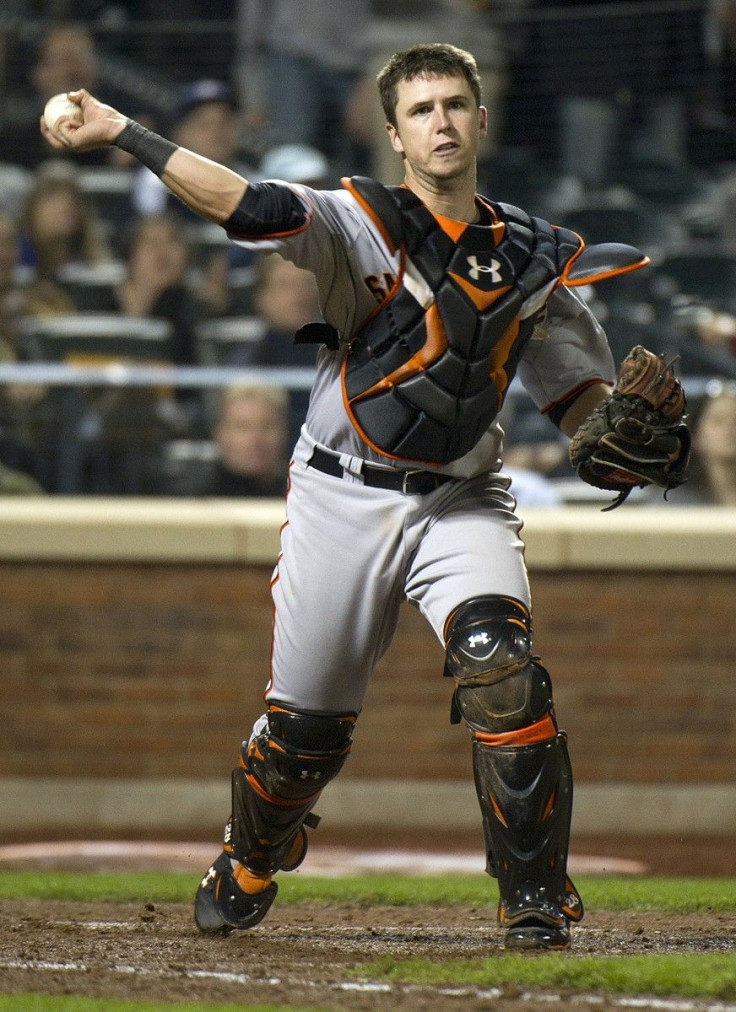Sabean's Hypocrisy: In defense of Scott Cousins

Baseball experts have been clucking their tongues about the hard hit Scott Cousins put on San Francisco's Buster Posey at home plate on May 25, a clean play that unfortunately broke a bone in Posey's leg and damaged three ligaments in his ankle. Posey is out for the year. Cousins is getting death threats.
It's long been acceptable in professional baseball for a runner to upend a catcher who is blocking the plate, and Major League Baseball isn't poised to change the rules in light of the latest injury.
I think it's safe to say that I don't anticipate any changes, but I'm willing to listen, Joe Torre, MLB's executive vice president of baseball operations, told MLB.com. I'm trying to envision myself rounding third and heading to home. As you see the catcher waiting for the throw from the outfield, your thought process is to score and you may have to upend him. Do I think Cousins' design was to try to hurt him? I don't think so. I think his design was to make sure Posey didn't catch the ball and score the run. The fact that Buster didn't field the ball came too late for Cousins to change what he started to do.
The question certainly is whether Marlins outfielder Cousins could have slid into home and scored without bowling over Posey, or whether he should have eased up. The fact is he scored on the play, which in one sense justifies his decision to run into Posey. Cousins' goal was to score, and score he did. Posey was standing in between Cousins and home plate, without the ball. Baseball tradition holds that the runner can collide with the catcher in that situation.
Perhaps MLB should reconsider this decision. Perhaps runners should have to slide into home plate they way they are required to slide into the other bases. Perhaps defensive players shouldn't be allowed to block the base path in front of home plate, the same way they are prohibited from doing so at all the other bases. But on the night of May 25, the old rules were in place, and Cousins made a clean play. It resulted in a run for the Florida Marlins--the winning run in an extra-innings ballgame--and a season-ending injury for Posey.
Cousins did his job. It was an important run, in a big situation, and he scored it. Now, part of the baseball world wants to not just throw out the tradition of collisions at the plate but somehow pretend that the tradition wasn't in place, wasn't the norm, when Cousins hit Posey.
Cousins has tried to apologize directly to Posey but he hasn't taken Cousins' call. Brian Sabean, the San Francisco Giants general manager, has vilified Cousins in the media. He chose to be a hero in my mind, and if that's his flash of fame, then that's as good as it's going to get, pal, Sabean said on talk radio. We'll have a long memory. ... If I never hear from Cousins again or he never plays another day in the big leagues, I think we'll all be happy. As a result of this kind of talk, Cousins is receiving death threats, and he is concerned about his family, who happens to live in San Francisco.
Major League Baseball should consider a rule change. The critics are right about that. But what Sabean is doing has less to do about collisions at the plate than it has to do with his team trying to defend its perch as World Series champions. Sabean is upset that one of the stars of his team, a first round draft pick, a bargain at $575,000 a year, will not be playing for him this season. Sabean is concerned that the Giants currently hold a tiny 1/2-game lead over Arizona in the National League West.
Sabean wants to win. This motivation sounds familiar. It was what drove Cousins to collide with Posey. For the win.
If the collision had injured the Marlins' backup catcher, a journeyman with a .220 batting average, this national conversation wouldn't be happening. And Sabean would almost assuredly be silent. But evidently, if you are an obstacle thwarting Sabean's path, look out. He's coming in, cleats up.
© Copyright IBTimes 2024. All rights reserved.





















